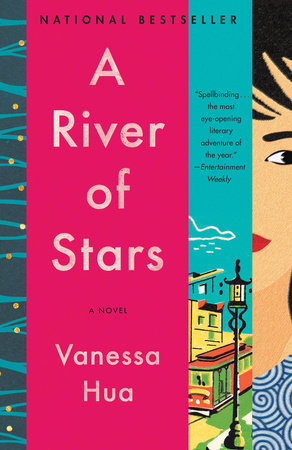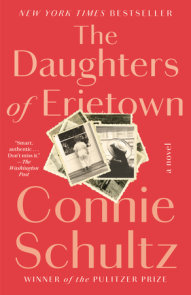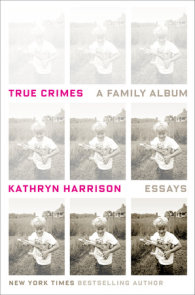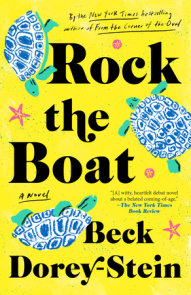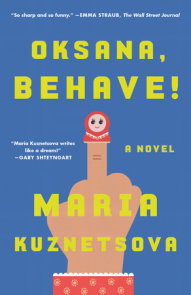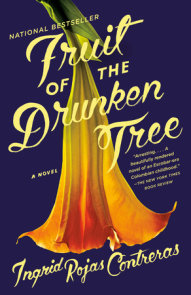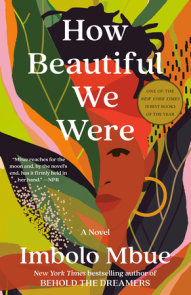READERS GUIDE
Questions and Topics for Discussion
1. Scarlett Chen is a survivor. What aspects of her personality enable to her to strive? Consider the immigrants in your family history, or others whom you might know—what have they endured to live in a new land?
2. Motherhood is a major theme of the novel. How does Scarlett’s relationship with her mother change after she becomes one herself? In what ways does Scarlett navigate motherhood similarly to or differently from the much-younger Daisy?
3. Did you find the character of Scarlett’s mother sympathetic? Why or why not?
4. What is the dynamic between Scarlett and Daisy? What is special about women’s friendships, and how women both sustain and challenge each another?
5. Chinese tradition calls for women to confine themselves for a month after giving birth, and to eat nourishing stews. Contrast this practice with those in the West, which get women back on their feet more quickly. What are the drawbacks and benefits of both?
6. The preference for a son remains strong in Chinese culture. Consider Boss Yeung’s desire to carry on the family line, and how that influences his decisions, as well as his relationships with Scarlett and his eldest daughter Viann.
7. If Scarlett had remained in China to give birth, what kind of life could she have made for herself and her child? What are the opportunities and difficulties she faces by coming to America?
8. Many of the themes of the novel relate to immigration and identity. How are those themes relevant to current events?
9. Daisy is American-born and Taiwan-bred. With one foot in each world, how does she find home and belonging?
10. San Francisco’s Chinatown—the oldest in the United States—is a haven and a hideout for Daisy and Scarlett. What did you find most unexpected about this enclave, and what interested you most?
11. Scarlett and Boss Yeung have a fiery and complex relationship. What are they seeking in each other, and how does their relationship evolve?
12. Food is culture, preserving and passing down traditions from one generation to the next, and carried from one country to another. What role does food play in the novel, and in particular, for Scarlett?
13. Did the novel contribute to your understanding of modern Chinese history or culture? What aspects surprised you in Hua’s depiction of China and Chinatowns?
14. Hua writes about the myth of the cowherd and the fairy weaver, two lovers separated by a river of stars and reunited once a year. How do you interpret the meaning of this myth? What do you think the river of stars represents when viewed through the lens of global migration?
About this Author
A Conversation with Vanessa HuaOriginally published in the Los Angeles Review of Books, September 13, 2018
A River of Stars, Vanessa Hua’s first novel, is a stirring exploration of identity: what it means to be a parent, a lover, a friend. Both physically and emotionally, Scarlett lives between two worlds, caught between China and the United States, between tradition and modernity, between vulnerability and evolution. What does she discard and what does she keep as she searches for a place to belong?
Melody Schreiber is a freelance journalist based in Washington, D.C. She spoke with Vanessa Hua about the duality of motherhood and migration, and the meaning of legacy—what we leave behind and what carries on long after we’re gone.
Melody Schreiber: Thank you for writing this book. While I was reading it, my son started daycare, and I’ve grappled with wanting to be with him but also needing and wanting to work. In one part of the story, your main character, Scarlett, starts working after having a child. She feels so useful, so like her old self, when she’s working, but she also worries constantly that she’s failing her daughter. It really resonated with me, how much of motherhood is a balance—not just balancing your time, which is a huge undertaking in itself, but also balancing yourself, your identity. How will a baby change me and the way I live my life? How do I hold on to my essential self, and how much will I change?
Vanessa Hua: I always knew I wanted kids, but I also always wondered what’s going to happen? Who will I be?
The circumstances in which my main character, Scarlett, finds herself couldn’t be more different from mine. But at the same time, any woman who becomes a mother is faced with very similar decisions. On a practical level, you are responsible for keeping another human alive every day. But on another level, you’re going through so many changes. So much shape-shifting happens, starting with your own body. You’re growing someone else inside you. And you’ll then be in charge of taking care of them once they’re born.
It’s interesting how blind you can be to what is around you, until it becomes relevant to you. Having kids made me see the world in different ways. From practical aspects, like where the nearest playground is, to the more profound, like how language is formed and developed.
Once we visited an outdoor sporting goods store, where my kids saw kayaks standing upright. They were calling them rocket ships. I said, “They are! They look exactly like rocket ships!”
Kids are natural poets. They have this freedom and facility with language that we as creative writers are trying to find our way back to. And just trying to explain things like racism and inequality, or Thanksgiving, or Martin Luther King Jr.—you begin to think about what and how you were taught, how you were raised.
MS: When I thought about having kids, I often focused on everything I wouldn’t be able to do—stay out late or travel as easily or make decisions as spontaneously. I never really thought about the ways in which my life would become richer and the world might open up to me, from starting or deepening relationships to seeing the world differently.
VH: Yes! Because I didn’t know what being a parent was like, I thought only about all the things that would be closed off to me. When, in fact, there are all sorts of ways you engage with the world as a parent, and it helps you understand a greater range of the human experience.
I started writing this novel in the months after giving birth, and a lot of that is reflected in Scarlett. Nothing that’s a one-to-one correspondence, nothing that happened in my life happening in hers. But I was thinking about the transformations mothers go through, our identities, the work we do and how that work is valued. And the relationships we form, the families we make that are not passed down by genetics but formed by us.
When she was a teen, Scarlett migrated within China from her rural village to a factory city, and she had to learn how to survive on her own. Now, she’s making her way in an entirely new country. She has left behind the only life she’s ever known; add to that the transition of becoming a mother. Now it’s all about finding her footing. Scarlett is coming to terms with the kind of life she will build for herself and her child.
Scarlett has, by necessity, led a very solitary life. She has never quite found friendship or community or lasting love; but in having a child, she opens herself up to possibilities that she didn’t before. That’s something that often happens in motherhood. She comes to a point where she realizes she can’t always just leave and start a new life. She wants to form deep roots and longer-lasting relationships.
MS: Your book grapples with these deep emotional and psychological themes, but it is also very much concerned with the physical—from Scarlett’s pregnancy and postpartum time, to other characters’ very serious illnesses. It speaks to how our bodies bind us to this earth for a certain time, but our bloodlines continue after we’re gone.
VH: As I was writing the book, it was the start of my twins’ life, but my father was ailing; he had Parkinson’s. He was able to meet the twins, but he passed away when they were only 10 months old. I was aware, as I’d never been before, of mortality. That’s reflected in the book. I explore questions of legacy, the afterlife, and mortality. A big question in the book is What is my legacy? What will my life have meant?
MS: I really enjoyed the characters in your story. Scarlett finds it difficult to connect with people, especially women, but she’s super savvy and very shrewd. Boss Yeung and Mama Fang are similar, then you get to know them and see where their vulnerabilities and softnesses lay. Even your minor characters have unusual depth. They might be secondary or tertiary characters, but they have a story.
VH: Characters, even though they’re minor, shouldn’t be a device. No person should be a device to move the plot along. That’s when you run into problems with stereotypes. I strive, in my journalism and my fiction, to make characters as complex and complicated as they are in real life. Particularly with Mama Fang and Boss Yeung, from the outset they come off as villainous or at the very least questionable. But then, like anything, it comes down to understanding their history, their circumstances, and their motivations. You still might not agree with what they’ve done, but at least they’re not defined by one action.
With Scarlett, her journey is not just about survival, but also expansion. You can only be isolated for so long; this is her way of coming into her own as a person, by finding a community. She forms the family she’s never had before.
MS: Why was telling this story important to you? What do you want readers to get from the story, if nothing else?
VH: I really appreciate the way books have helped expand my understanding of the world. Fiction fosters empathy among readers by putting them in a position to consider deeply someone else’s history, hopes, and ambitions. I hope people reading this book would either be exposed to something new to them, or—also importantly—would feel recognized, like they’re seeing something familiar to them. When I was growing up, I often didn’t have access to or didn’t know about books that had characters who were Chinese-American or Chinese. I hope that readers either feel seen or as though their eyes are opened in some way.
MS: Scarlett is a migrant mother facing the very real possibility of being deported and being separated from her daughter. It is, unfortunately, a very timely issue. But this is also something that has been going on for a long time.
VH: There’s a narrative that immigrants only come by foot over our southern border. It’s false. Forty percent or so of people who are undocumented in the United States actually came in legally and then continued living here on visa overstays. The immigration system is broken, but it’s much more complex—and the solutions are far more complex—than simply, for instance, building a wall.
America prides itself on being a nation of immigrants. It’s our origin myth. But even though it’s our history, there’s been controversy for as long as there’s been immigration—certainly around Chinese immigrants, with the Chinese Exclusion Act that began in 1882 and didn’t end until well into the twentieth century, in 1943. Throughout modern Chinese history, families have been separated; both within China, as parents work in factories and send their children to villages to be raised by grandparents, and also through migration to and from the United States. There is an enormous pain and trauma around that separation.
In my story, both Scarlett and Daisy are in incredibly vulnerable situations. Their children could be taken away from them. It also brings up issues around reproductive choice, which can be defined not only by the decision to have a child or not, but what will happen to that child if you do have one. How will you raise him or her in a vulnerable situation like this? How will you keep yourself and your child together?
Hopefully the novel broadens people’s understanding of immigration to this country: how people get in, how they live, what they’re striving for.
MS: How has your own background informed this story, and to what degree?
VH: I’ve been covering Asia and the diaspora for two decades as a journalist and a fiction writer. I’ve reported from the Pearl River Delta, from which many Chinatown residents migrate. In the villages, the very old care for the very young; anyone of working age lives in the cities. I’ve seen what the changes in China’s economy have done to families. And how these transformations reach across the Pacific. I try to depict many of these close connections, the back-and-forth of migrants to ancestral and adopted homelands, in the book.
I remember when my short story collection, Deceit and Other Possibilities, came out, people asked, “What character is most like you?” They all are. All of these characters came from my imagination.
I’ve likened inspiration to dust forming up in the clouds. All the reporting I’ve done or conversations I’ve had or articles and books I’ve read—they’re seeding the cloud until it gets heavy enough to start raining. To start writing.







